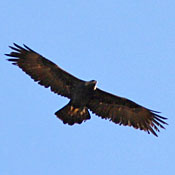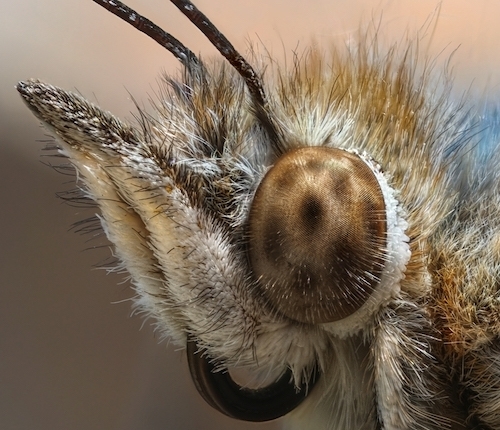
Hawk Like
Golden Eagle
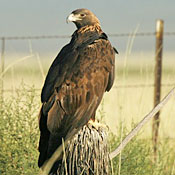
Length: 40 in. (88 cm )
Male | Robert Shantz
Male | Robert Shantz
Aerial
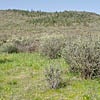
Chaparral
Cliffs / boulders
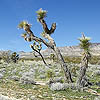
Desert
Grasslands
View Citation
Bibliographic details:
- Article: Golden Eagle
- Author(s): Dr. Biology
- Publisher: Arizona State University School of Life Sciences Ask A Biologist
- Site name: ASU - Ask A Biologist
- Date published: July 13, 2017
- Date accessed: November 26, 2024
- Link: https://askabiologist.asu.edu/activities/bird/golden-eagle
APA Style
Dr. Biology. (2017, July 13). Golden Eagle. ASU - Ask A Biologist. Retrieved November 26, 2024 from https://askabiologist.asu.edu/activities/bird/golden-eagle
Chicago Manual of Style
Dr. Biology. "Golden Eagle". ASU - Ask A Biologist. 13 July, 2017. https://askabiologist.asu.edu/activities/bird/golden-eagle
Dr. Biology. "Golden Eagle". ASU - Ask A Biologist. 13 Jul 2017. ASU - Ask A Biologist, Web. 26 Nov 2024. https://askabiologist.asu.edu/activities/bird/golden-eagle
MLA 2017 Style
Be Part of
Ask A Biologist
By volunteering, or simply sending us feedback on the site. Scientists, teachers, writers, illustrators, and translators are all important to the program. If you are interested in helping with the website we have a Volunteers page to get the process started.







